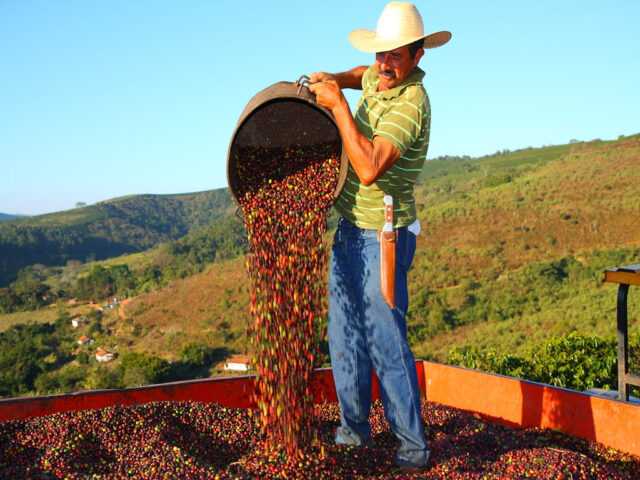SAO PAULO, Brazil – The harvesting of the 2021/22 crop of arabica coffee is in full swing in Brazil. Until August 6, activities had reached from 70 to 80% of the output expected for the country, according to Cepea surveys. The dry weather and the lower volume to be harvested this season favored the progress of the harvesting from July onwards. However, it is important to highlight that the harvesting this year is late compared to that in previous years, due to the late flowering of the arabica trees in 2020, which delayed crops development.
As a high volume has already been harvested, Brazilian coffee farmers have confirmed a crop failure in the 2021/22 season. Agents have reported harvests lower than the expected in some areas, besides lower-grade beans. On the other hand, this season has been marked by beans of higher quality beverage, favored by the dry weather during the harvesting.
As regards deals in the Brazilian spot market of arabica, liquidity was low in the first half of August. Agents, majorly sellers, were watching out for price swings and forecasts for new cold fronts in Brazil in August, which may influence coffee pricing.
On August 13, the CEPEA/ESALQ Index for arabica coffee type 6 (delivered to São Paulo city) closed at 1,028.95 BRL (196.25 USD) per 60-kilo bag, 1.4% up from that on July 30, largely boosted by concerns about the drought in Brazil.
The harvesting of the 2021/22 crop of robusta coffee ended in Brazil in July. Despite the dry weather, sporadic flowering from the 2022/23 season was registered in some crops in Espírito Santo and in Rondônia, favored by irrigation.
In the spot market, some deals were closed in the first half of August, majorly for the robusta type 7/8 (lower quality), due to the recent valuations of this variety. Prices were influenced by the increases in futures contracts and the dollar appreciation. Still, agents considered liquidity low, due to the disinterest of farmers in selling the product.
In general, robusta farmers have made cash flow this season, due to the price rises from 2020 onwards and the lower productivity of crops in the 2021/22 season. Now, many of them intend to sell the product only when in need of cash flow or when prices rise again, based on the lower supply of arabica coffee.
On August 13, the CEPEA/ESALQ Index for the robusta type 6, screen 13, Espírito Santo, closed at 631.18 BRL (120.39 USD)/bag, a staggering 8.7% up from that on July 30.


















